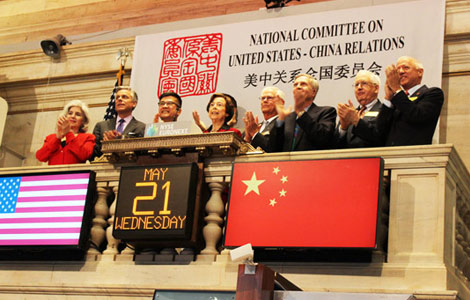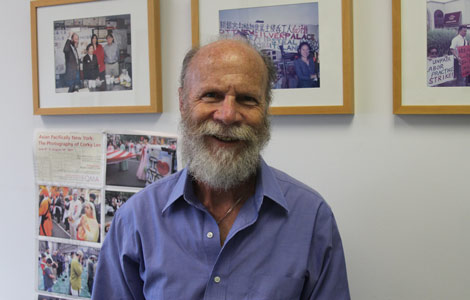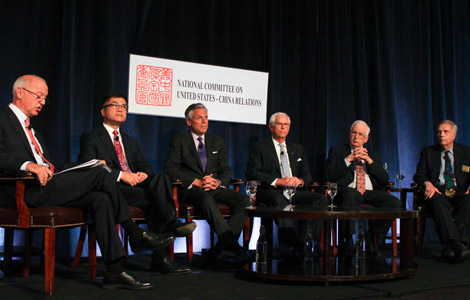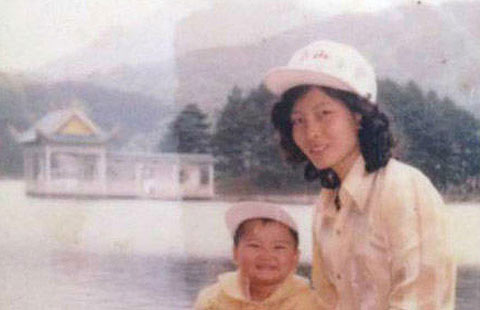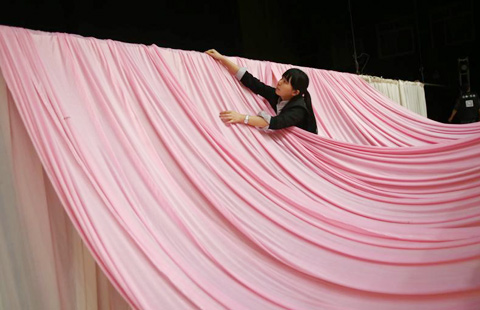China demands cyber charges be dropped
Updated: 2014-05-22 08:47
By CHEN WEIHUA in Washington and LI XIAOKUN in Beijing (China Daily USA)
|
||||||||
A Chinese Foreign Ministry official on Wednesday lodged a complaint to visiting US Deputy Assistant Secretary of State for East Asian and Pacific Affairs Kin Moy regarding the US Justice Department's indictment of five Chinese People's Liberation Army officers for alleged cyber theft of commercial secrets from US corporations.
In his meeting with Moy, Cong Peiwu, director-general of the Department of North American and Oceanian Affairs of the foreign ministry, said the indictment by the US is purely ungrounded with ulterior motives and it further exposes the hypocrisy and hegemony of the US on cyber security issues.
"The Chinese military and relevant personnel have never engaged or participated in cyber theft for trade secrets. The 'indictment' by the US grossly violates the basic norms governing international relations and disrupts and jeopardizes China-US relations," Cong said.
He said China urges the US to correct its mistakes and revoke the "indictment".
Moy is in Beijing in consultation with the Chinese side for the upcoming 6th session of the China-US Strategic and Economic Dialogue (S&ED), which was expected to be held in Beijing in early July.
However, following the US Justice Department's decision, China announced it would cancel the meeting of the joint cyber security working group, set up a year ago as an important part of the S&ED to deal with growing concerns of the two countries over the issue. China has accused the US of a lack of sincerity in pursuing a solution to the issue through dialogue and negotiation.
China has also summoned US Ambassador to China Max Baucus and the acting US milit Contact the writers at chenweihua@chinadailyusa.com and lixiaokun@chinadaily.com.cn.ary attaché in Beijing to make a solemn representation. In Washington, Chinese Ambassador to the US Cui Tiankai has lodged protests with officials at the State Department.
Many analysts have interpreted the US action as an awkward move at least on the diplomatic front. It happens at a time when a bilateral military-to-military relationship, which has long lagged behind relations in other dimensions, has been warming up, and it comes about six weeks before the next S&ED.
At the US State Department daily briefing on Wednesday, spokeswoman Jen Psaki confirmed that Moy has been in Beijing for the last couple of days meeting Chinese counterparts in preparation for the S&ED. She described it as "a very important part of our strategic relationship with China".
Psaki said there is a range of tools the US can use to meet its concerns over cyber security, such as legal tools and diplomatic tools.
"But we believe dialogue is the right way to proceed forward. We certainly hope that is the path we can proceed down," she said, without saying whether or not the cyber working group meeting would be restored.
Cui, the Chinese ambassador, told CNN in an interview aired on Tuesday that the very basis for the working group is the commitment of all sides to work to address these measures, to address these issues for cooperation and dialogue.
"And now they are taking unilateral action," Cui said, referring to the US indictment. "They really undermine the very basis of the working group."
China has indicated it would not resume the cyber working group talks unless the US side revokes the indictments.
The growing spat between the two countries is also inflicting a cost on businesses.
Beijing said on Monday it would prohibit the use of the Windows 8 operating system in new government computers to ensure security following the end of technical support for Windows XP.
US equipment and software providers such as IBM and Cisco Systems have already seen their sales in China drop after former US National Security Agency contractor Edward Snowden's revelations began to emerge last year.
Li Yuxiao, director of the Institute of Internet Governance and Law under Beijing University of Posts and Telecommunications, said, "US technology companies will suffer a lot in the Chinese market amid China's distrust of the security of American products due to the US government's global cyberspying."
Du Yuejin, head of the National Institute of Network and Information Security, said it is necessary for the government to check the security of US technology products.
Pentagon press secretary John Kirby said on Tuesday that the US did not expect China to react well to the indictments and that the Pentagon wants to keep lines of communication open.
Contact the writers at chenweihua@chinadailyusa.com and lixiaokun@chinadaily.com.cn.
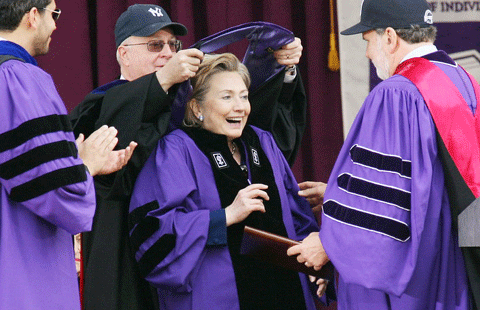
 World leaders wear gowns to collect certificates
World leaders wear gowns to collect certificates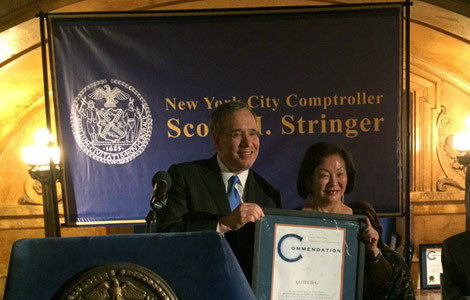
 NYC comptroller honors Chinese businesswoman
NYC comptroller honors Chinese businesswoman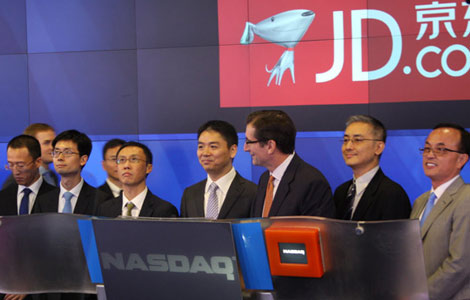
 JD.com makes US debut with $1.78b IPO
JD.com makes US debut with $1.78b IPO
 Chinese farmers' art paintings score at UN
Chinese farmers' art paintings score at UN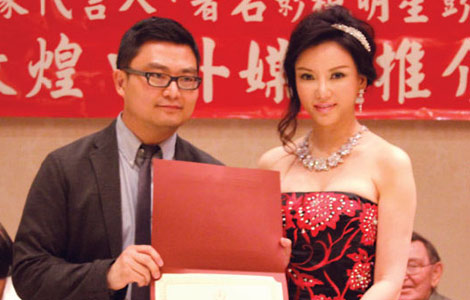
 Star fronts for ancient Chinese city
Star fronts for ancient Chinese city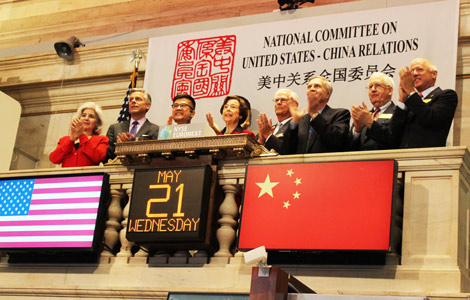
 Former ambassadors ring the closing bell
Former ambassadors ring the closing bell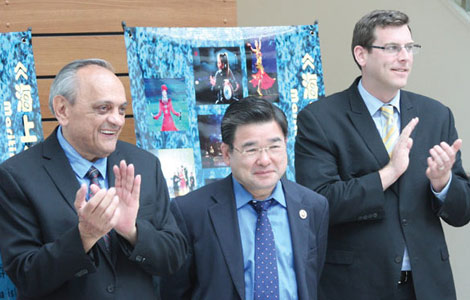
 Silk road shuffle
Silk road shuffle
 Largest Chinese group ever is visiting US
Largest Chinese group ever is visiting US
Most Viewed
Editor's Picks

|

|

|

|

|
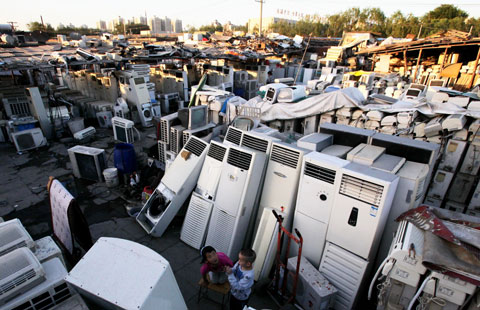
|
Today's Top News
Checks to help ensure cybersecurity
Opinion: The pot calls the kettle black
Russia, China veto draft UN resolution on Syria
US condemns terror attack in China's Xinjiang
Tougher times for foreign tech firms
Shares of JD.com soar 17% in debut
Obama turns to tourism
Lucy Li, at age 11, makes US golf history
US Weekly

|

|
